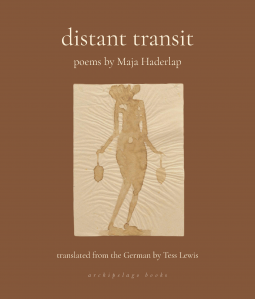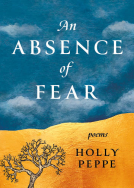
Distant Transit
Poems
by Maja Haderlap
This title was previously available on NetGalley and is now archived.
Send NetGalley books directly to your Kindle or Kindle app
1
To read on a Kindle or Kindle app, please add kindle@netgalley.com as an approved email address to receive files in your Amazon account. Click here for step-by-step instructions.
2
Also find your Kindle email address within your Amazon account, and enter it here.
Pub Date 22 Mar 2022 | Archive Date 15 Dec 2021
Talking about this book? Use #DistantTransit #NetGalley. More hashtag tips!
Description
At its core, Distant Transit is an ode to survival, building a monument to traditions and lives lost.
Infused with movement, Maja Haderlap’s Distant Transit traverses Slovenia’s scenic landscape and violent history, searching for a sense of place within its ever-shifting boundaries.
Avoiding traditional forms and pronounced rhythms, Haderlap unleashes a flow of evocative, captivating passages whose power lies in their associative richness and precision of expression, vividly conjuring Slovenia’s natural world––its rolling meadows, snow-capped alps, and sparkling Adriatic coast.
Belonging to the Slovene ethnic minority and its inherited, transgenerational trauma, Haderlap explores the burden of history and the prolonged aftershock of conflict––warm, lavish pastoral passages conceal dark memories, and musings on the way language can create and dissolve borders reveal a deep longing for a sense of home.
Advance Praise
“Maja Haderlap’s poetry and prose combine poetic brilliance with explosive political power.” --From the jury citation for the 2018 Max Frisch Prize
Praise for Angel of Oblivion:
Tess Lewis has done a fine job of translating Haderlap’s lucid and lyrical prose...a hymn to remembrance – one urging us to salvage and safeguard the shards of our past from the tide of history.
—Malcolm Forbes, The National
Angel of Oblivion, with its doomed and colourful cast of real-life characters, as well as multiple cruel twists of fate, is a devastating story, never less than wholeheartedly told. —Eileen Battersby, The Irish Times
Angel of Oblivion is a continuous, plunging attempt to express the disorderly but urgent moment of daring to master the unmasterable. There is nothing so crass here as an ‘arc’ or a redemptive release. The reader is on the hook until the end – at which point the narrative’s underlying premises shimmer. —Ron Slate
"An arresting evocation of memory, community, and suffering." —Kirkus
"Haderlap’s novel seems to transcend the boundaries between languages and histories." —Iga Nowicz, The Glossa
"Haderlap has written Angel of Oblivion in German with a clear and yet poetic tone, in which time is a solid glacier crushing underneath itself everything that the young hero once saw as wonderful and enduring." —Der Spiegel
Additional Praise for Maja Haderlap:
“The desire to abolish borders, to free confined discourse, is inscribed in these poems as an ambivalent back and forth between escape and groundedness.” --Ilma Rakusa, NZZ
“Wondrously expressive poems” --Karl-Markus Gauß, Süddeutsche Zeitung
“There is no doubt that [Haderlap’s poetry] sets a new benchmark in modern poetry with regard to thematic variation in linguistic reflection and direct expression.” --Walter Pobaschnig, literaturoutdoors
“Haderlap’s poems are political but without pathos. And they are poetic without being artificial. This is no mean feat. Strongly recommended.” --Tiroler Tageszeitung
Available Editions
| EDITION | Other Format |
| ISBN | 9781953861160 |
| PRICE | US$18.00 (USD) |
| PAGES | 150 |
Featured Reviews
Beautiful, seemingly desolate nature returns frequently in the poems. Even Venice seems barren and struggling against the tides without humans.
language opens rotted doors, thrusts the dusty boards from their brackets, reveals the buried stone. it flies at my face like a flock of starled swallows, confronts me as the smell of mold, drops from the jagged armor and hulls of kids’ stuff like silt shed from all that was. - home
Distant Transit is a bundle that made me want to read more poetry at the start of the year, very well done and almost hypnotic in how poet Maja Haderlap paints the landscapes and thinks about language. Nature, in the border region between Austria and Slovenia (Carantania) is often the subject, with sparse if any human population. The atmosphere is filled with melancholy, like for instance in:
the house you once lived in is a roughly timbered frame of smoke, it hovers over you, barely perceptible, imponderable, like you. - transit
House of desires then again is a poem that perfectly captures love.
House of old languages (quote at the top of the review) touches another prominent subject: the decline of language, porous and atrophied as a coral that struggles in globalisation.
In the end I feel the sentiment of the below poem is effortlessly conveyed to the reader and I throughly enjoyed reading about Slovenia for the first time in a poem:
my language wants to be unbridled and large, it wants to leave behind the fears that occupy it, all those stories dark and bright, in which its worth is questioned, only when it dreams does it soar, supple and light, by its very nature nearly song - dreaming language
 Joseph S, Reviewer
Joseph S, Reviewer
is there a zone of darkness between all languages,
a black river that swallows words
and stories and transforms them?
-- from "translation"
Distant Transit by Maja Haderlap (translated from German by Tess Lewis) is a collection of poems reflecting on memories of her homeland. Haderlap is bilingual Slovenian-German Austrian writer, best known for her multiple-award-winning novel, Angel of Oblivion, about the Slovene ethnic minority's transgenerational trauma of being treated as 'homeland traitors' by the German-speaking Austrian neighbors, because they were the only ever-existing military resistance against National Socialism in Austria.
The first section of the book delivers poetry of memory and youth. Haderlap captures that idealized picture of youth and the surroundings. The region of her youth is a land of great natural beauty, but also a land of 20th Century violence and division. Her voice shifts. Her poetry demonstrates a loss of identity. In explaining borders, we learn that they mean little, just political lines, drawn through the countryside not reflective of the people. Cities and towns stand on their own without mention of nationality. Her language to communicate with the world has also been replaced. Haderlap embodies the desolation of her poetry in her words and in the lower case "i" when referring to herself.
Distraught bees buzz in the corridor
of my abandon language,
birds of passage purge themselves in
rooms assailed and reviled
as if they were finally home -- that is, there where
they once were, language
kept in me thrall to the world but left me
unsatisfied were i to bite through it,
i would taste it desolation.
This collection, however, does not offer any insight to the poet. An introduction could have helped other readers connect with the poet and her writing. Her grandmother was sent to a concentration camp during the war and her father, as a boy, was tortured by the Nazis. These images still haunt Haderlap in her poetry. A fine collection that shows the loss of cultural identity and being left outside the new order.











